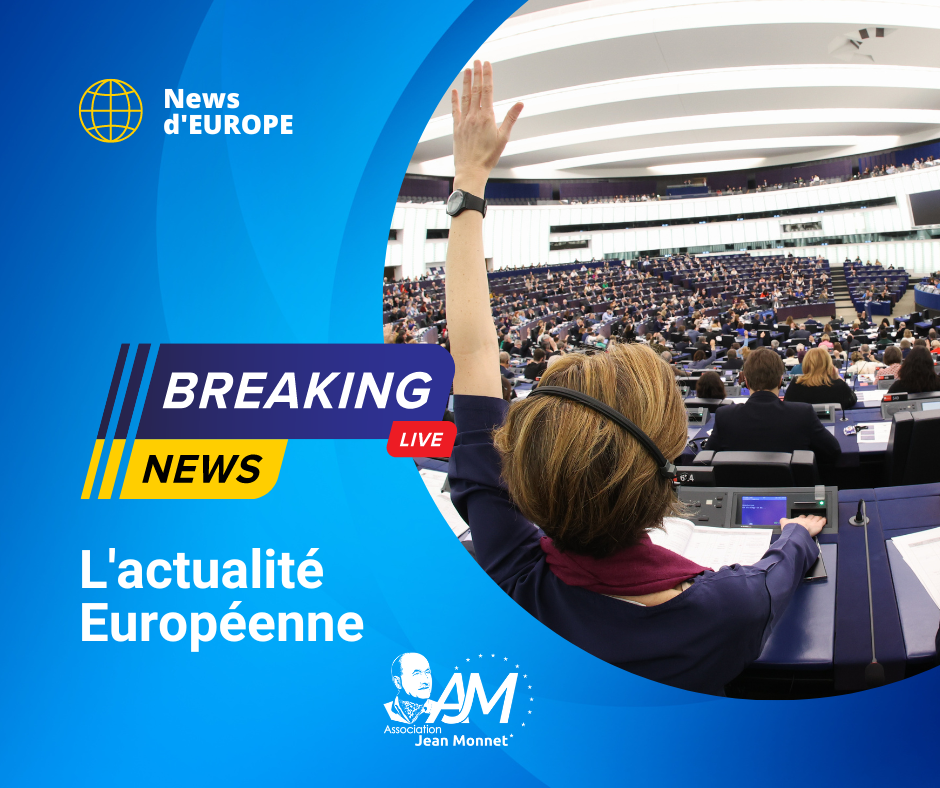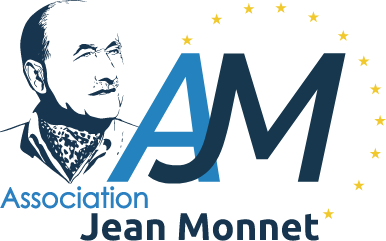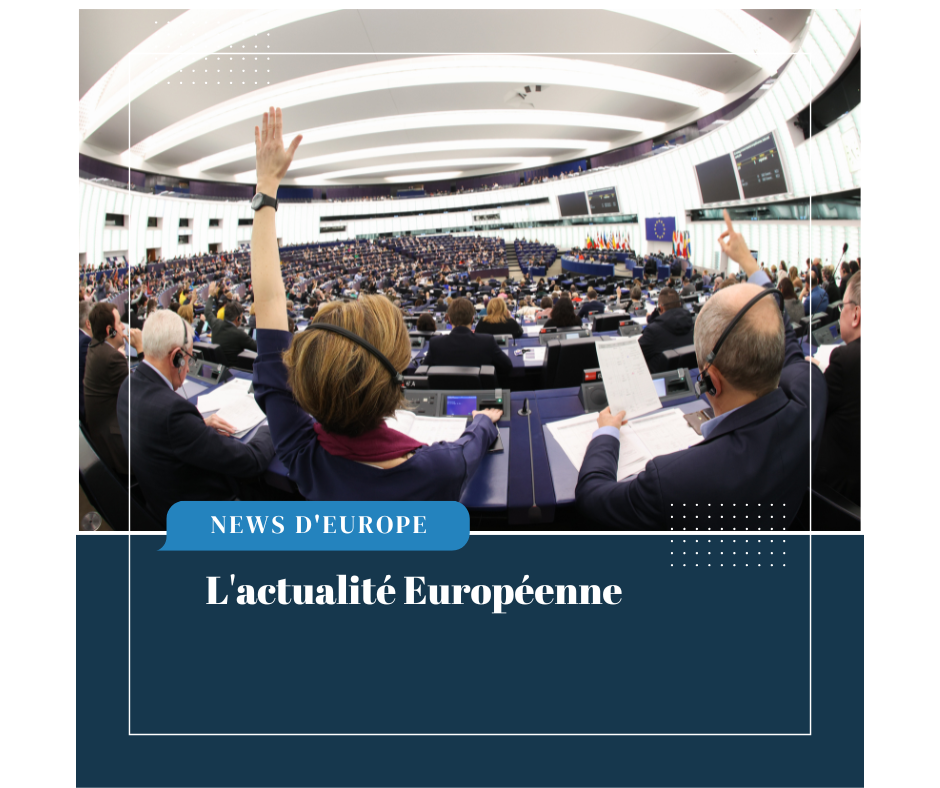by Zacharie Schaerlinger
24 March 2023

News from Europe
13 March 2023
Net-Zero Industry Act: Making the EU the home of clean technologies manufacturing and green jobs
The President of the Commission announced the Net-Zero Industry Act, a plan that is part of the strategy of the industry component of the Green New Deal. The aim is to increase the production of green technology and to properly implement the energy transition.
The Act aims to increase the resilience and competitiveness of zero-carbon technologies in the European Union but also to protect our energy supply sources. This strategy will attract better investment with the aim of covering 40% of the EU's zero carbon technology needs to develop jobs, industry and business resilience. This proposal is part of the European Critical Materials Act, a rare and necessary material for transition. The aim of this act is to reduce dependence on imports.
The Act then describes the technologies needed for the transition: solar panels, thermal energy, wind turbines, battery storage, alternative fuels, nuclear energy with minimal waste, modular reactors.
The Act then lists the actions needed to invest in these technologies: reducing the bureaucratic burden, improving investment conditions and improving training. Secondly, the idea is to improve CO2 capture. Finally, the strategy aims to facilitate market access in order to increase the supply of zero-carbon technologies. The act also proposes to foster innovation with state initiatives at local level under certain conditions. The Commission also proposes the establishment of a platform to coordinate Member States. The Europe Zero Net Platform will support investments and identify financial needs but also promote contacts between European industries by forming alliances. This act also proposes the formation of a European hydrogen bank. The first green hydrogen auctions will be launched with the Innovation Fund in autumn 2023. This will improve their profitability and lower investment costs. The Commission's proposal for an Act must now be accepted by the European Parliament and the Council.
Critical Raw Materials: ensuring secure and sustainable supply chains for EU's green and digital future
The Commission has proposed a series of comprehensive measures to improve the safety, sustainability and low cost of critical raw materials that are essential to many strategic industries: digital, defence, aerospace. The demand for critical raw materials will increase drastically and most of the suppliers are in the South. The EU must minimise this risk by diversifying its suppliers.
Together with the energy market reform and the zero-net industry act, the critical materials measure will lead to better environmental regulation and improve Europe's competitiveness. The EU has established a clear list of priorities to identify critical raw materials and diversify imports. It aims to produce at least 10% of its consumption through resource extraction, but also to process 40% of its annual consumption and recycle 15% of its average raw material consumption. Finally, no more than 65% of its annual consumption of each critical material should come from any one country.
This act aims to simplify the permitting process for the establishment of mines, which Member States will have to develop geological exploration programmes. To increase the resilience of supply chains, the Act will monitor the supply of critical materials and coordinate raw material stocks between states. The Commission also proposes to invest in research, innovation and skills in order to build a competent workforce to manage the supply and use of these resources through academic partnerships. Finally, the EU proposes to assist partner countries in developing their extraction and refining capacity by taking into account the development of professional skills. Finally, the Commission proposes to improve environmental protection through the recycling and sustainability of critical raw materials. A strong emphasis will be placed on respecting human rights and environmental impact to ensure sustainable development in the South and maintain regional stability.
Internationally, the EU will have to diversify its sources of supply, as European production will never be able to cover demand. The EU must seek to develop mutually beneficial partnerships, notably in its "Global Gateway" connection strategy, and to improve international trade by strengthening the International Trade Organisation in order to combat unfair trade practices. This Commission proposal for an Act must now be accepted by the European Parliament and the Council.
Launch of the EU-NATO Task Force: strengthening our resilience and critical infrastructure protection
The European Union is confronted with new areas of tension that test our resilience, particularly in the area of critical infrastructure. This confrontation is particularly visible in the economic field with the sabotage of Nord Stream. In this context, it is considered essential that the EU and NATO strengthen national and collective resilience to threats. This is reflected in the creation of an EU-NATO Critical Infrastructure Resilience Task Force to strengthen our common security, announced by the President of the Commission and the Secretary General of NATO on 11 January 2023.
The Task Force will cover four sectors: energy, digital infrastructure, transport and space and will include EU and NATO staff. The aim is to identify good practices and key principles for improving resilience.
Parliament denounces repression and show trials in Belarus
On Wednesday, Parliament "adopted a resolution condemning the Belarusian regime's systematic and continuing repression of the people and the opposition, including serious human rights violations". Parliament strongly condemns the regime's actions against journalist Andrzej Poczobut, Nobel Peace Prize laureate Ales Bialatski, who have been sentenced to long prison terms, and the conviction in absentia of exiled Belarusian opposition leader Svetlana Tikhanovskaya.
MEPs reiterate their strong condemnation of Belarus' involvement in the war in Ukraine and express their disappointment at the absence of Belarus from the new sanctions package. MEPs urge Member States and the EU to broaden the EU sanctions to include anyone complicit in the regime's repression, including judges, prosecutors, law enforcement officials, prisons and penal colonies. The text stresses the importance of investigating crimes committed by the Lukashenko regime and calls on EU countries to apply the principle of universal jurisdiction against Belarusian officials involved in human rights violations.
The text welcomes the "establishment of the "Mission for Democratic Belarus" in Brussels and calls on the EU institutions to support the mission and the "Belarusian people's embassies", as well as to build links between Belarusian democratic forces and the Parliament.
The text was approved by 557 votes in favour, 25 against and 40 abstentions.
Supporting clean technologies and combating human trafficking
The President of the European Council, Charles Michel, acknowledged the need to provide Ukraine with more arms and ammunition. He also said that the EU supports a peace plan put forward by President Zelensky, but that the Kremlin is not following up.
Charles Michel is trying to strike a balance between short-term measures to deal with the crises of recent years, while avoiding that these actions compromise the Union's long-term economic strategy. In his view, particular emphasis should be placed on supporting businesses, encouraging innovation and supporting fair trade. He defended China's role as a key player with whom the EU must engage globally and called on the EU to do "more and better" to combat human trafficking by establishing legal and safe migration channels to Europe.
The President of the Commission spoke with Joseph Biden and pointed out "a striking symmetry between the US Inflation Reduction Act (IRA) and the Green Deal for Europe" as both programmes aim to fight climate change and stimulate investment and growth. For the President of the European Commission, "the race to dominate net-zero technologies is on" and the EU must support its industry. She announced that the Commission would present proposals for net zero industry and a law for critical raw materials. Finally, particular attention must be paid to achieving the target of 3% of GDP investment in research and development.
MEPs went further. They insisted on a level playing field for European manufacturers in the face of US protectionism. They called for more trade diplomacy and for boosting European capital markets. Some MEPs criticised the Commission for caving in to lobbying by big energy companies. Finally, MEPs called on the Council to tackle the problem of illegal migration by ensuring that all Member States take their fair share of migrants.





